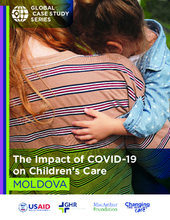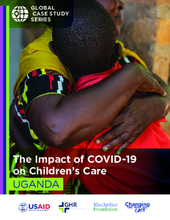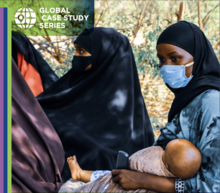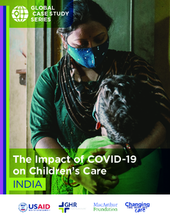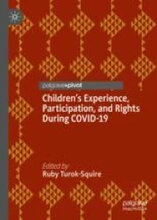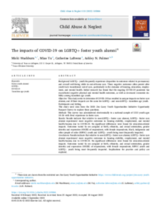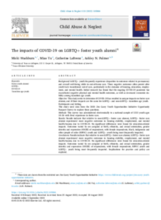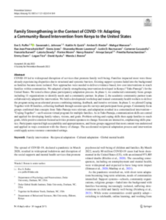This section includes resources on the response to the COVID-19 pandemic as it relates to child protection and children's care.
News on COVID-19 and Children's Care
Webinars and Events on COVID-19 Response
Displaying 31 - 40 of 756
This case study is part of a series of case studies conducted in India, Kenya, Moldova and Uganda over the course of 2020-2022 to share information on how COVID-19 has and is affecting family-child reunification, alternative care placement, and offers recommendations for family- and community-based care of vulnerable children in the context of COVID-19 and future emergencies.
This case study is part of a series of case studies conducted in India, Kenya, Moldova and Uganda over the course of 2020-2022 to share information on how COVID-19 has and is affecting family-child reunification, alternative care placement, and offers recommendations for family- and community-based care of vulnerable children in the context of COVID-19 and future emergencies.
This case study is part of a series of case studies conducted in India, Kenya, Moldova and Uganda over the course of 2020-2022 to share information on how COVID-19 has and is affecting family-child reunification, alternative care placement, and offers recommendations for family- and community-based care of vulnerable children in the context of COVID-19 and future emergencies.
This case study is part of a series of case studies conducted in India, Kenya, Moldova and Uganda over the course of 2020-2022 to share information on how COVID-19 has and is affecting family-child reunification, alternative care placement, and offers recommendations for family- and community-based care of vulnerable children in the context of COVID-19 and future emergencies.
The video provides key lessons learnt from COVID-19 on care reform from interviews with UNICEF, government and NGO staff in Rwanda, Uganda, Malawi and Kenya.
This chapter examines practical insight from research conducted across the UK and elsewhere in Europe of the contexts that children were experiencing, the pre-existing causes of some of the challenges and examples of children providing evidence about their experiences and insights into how policy and services could better respond to the COVID-19 pandemic.
Global totals and country comparisons were previously hampered by inconsistencies in COVID-19 testing and incomplete death reporting. The new orphanhood estimates derived here based on excess deaths provide a comprehensive measure of COVID-19’s longterm impact on orphanhood and caregiver loss.
This U.S.-based study seeks to determine if COVID-19 has resulted in unique impacts on foster care alumni, and if these impacts are the same for LGBTQ+ and non-LGBTQ+ transition age youth.
This U.S.-based study seeks to determine if COVID-19 has resulted in unique impacts on foster care alumni, and if these impacts are the same for LGBTQ+ and non-LGBTQ+ transition age youth.
COVID-19 led to widespread disruption of services that promote family well-being. Families impacted most were those already experiencing disparities due to structural and systemic barriers. Existing support systems faded into the background as families became more isolated. New approaches were needed to deliver evidence-based, low-cost interventions to reach families within communities. The authors adapted a family strengthening intervention developed in Kenya (“Tuko Pamoja”) for the United States.

